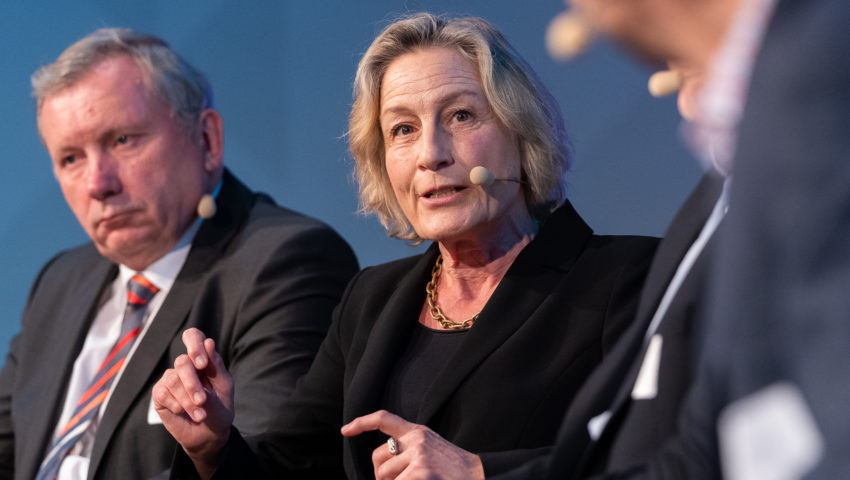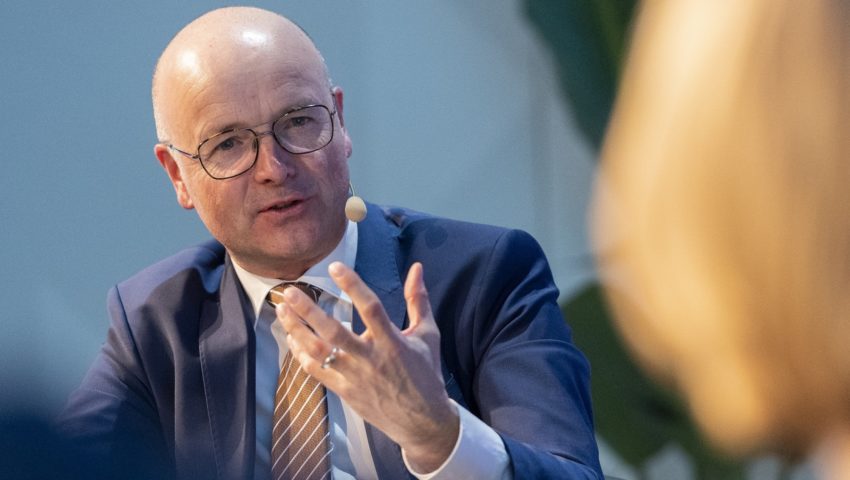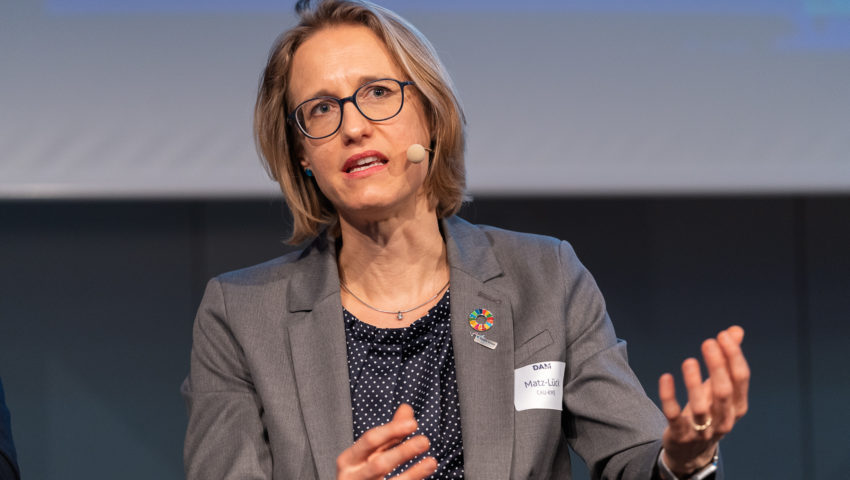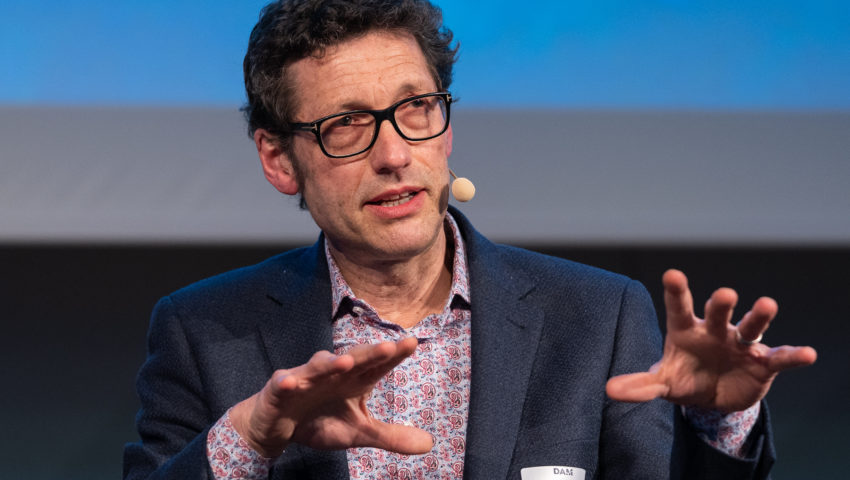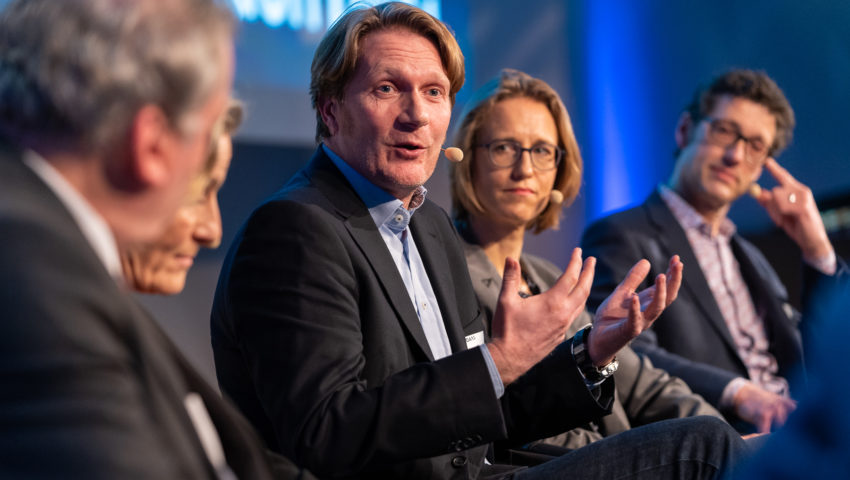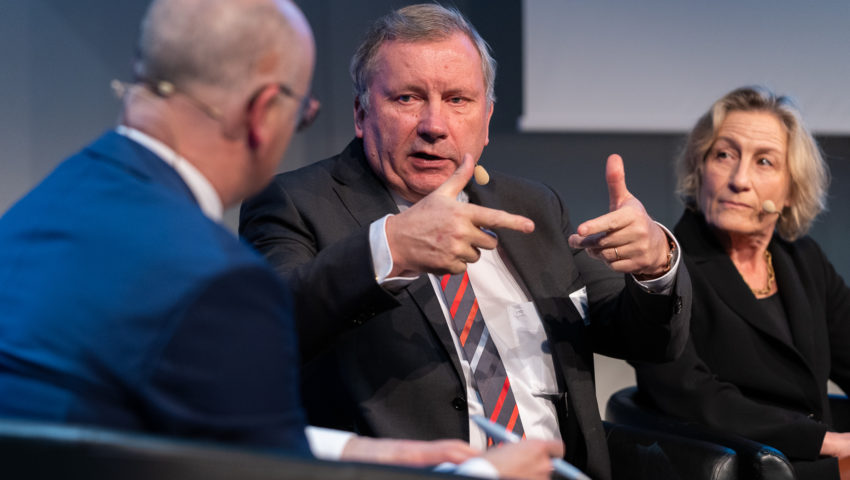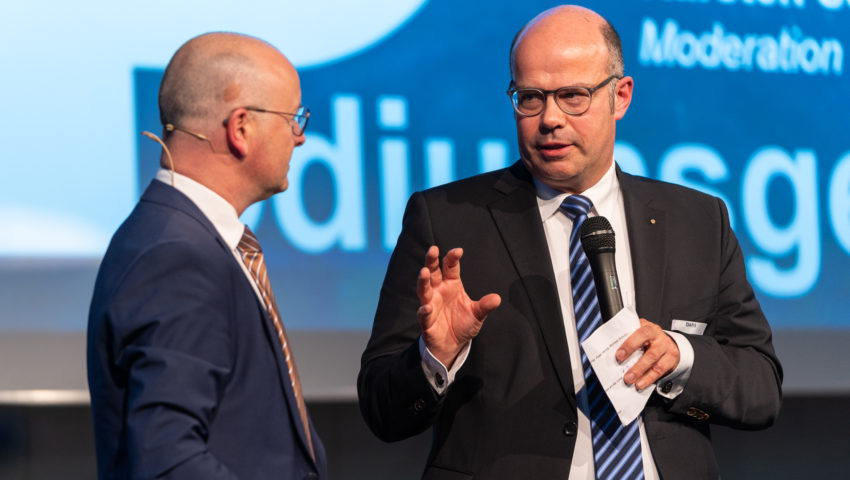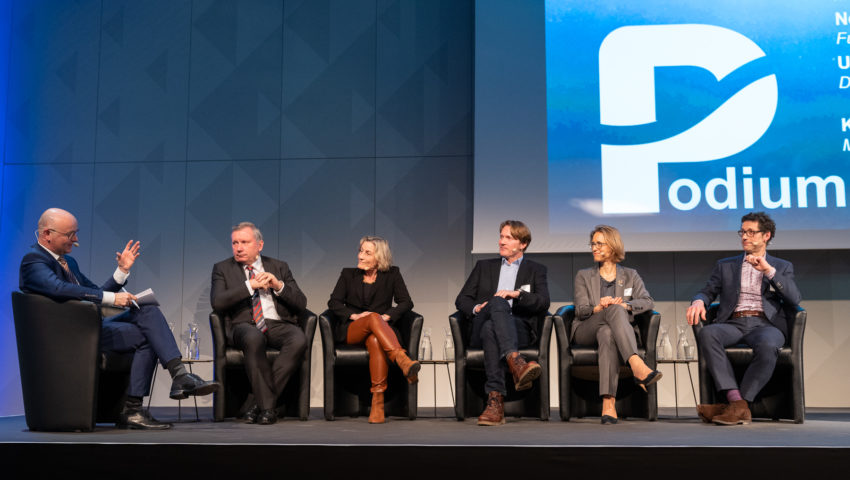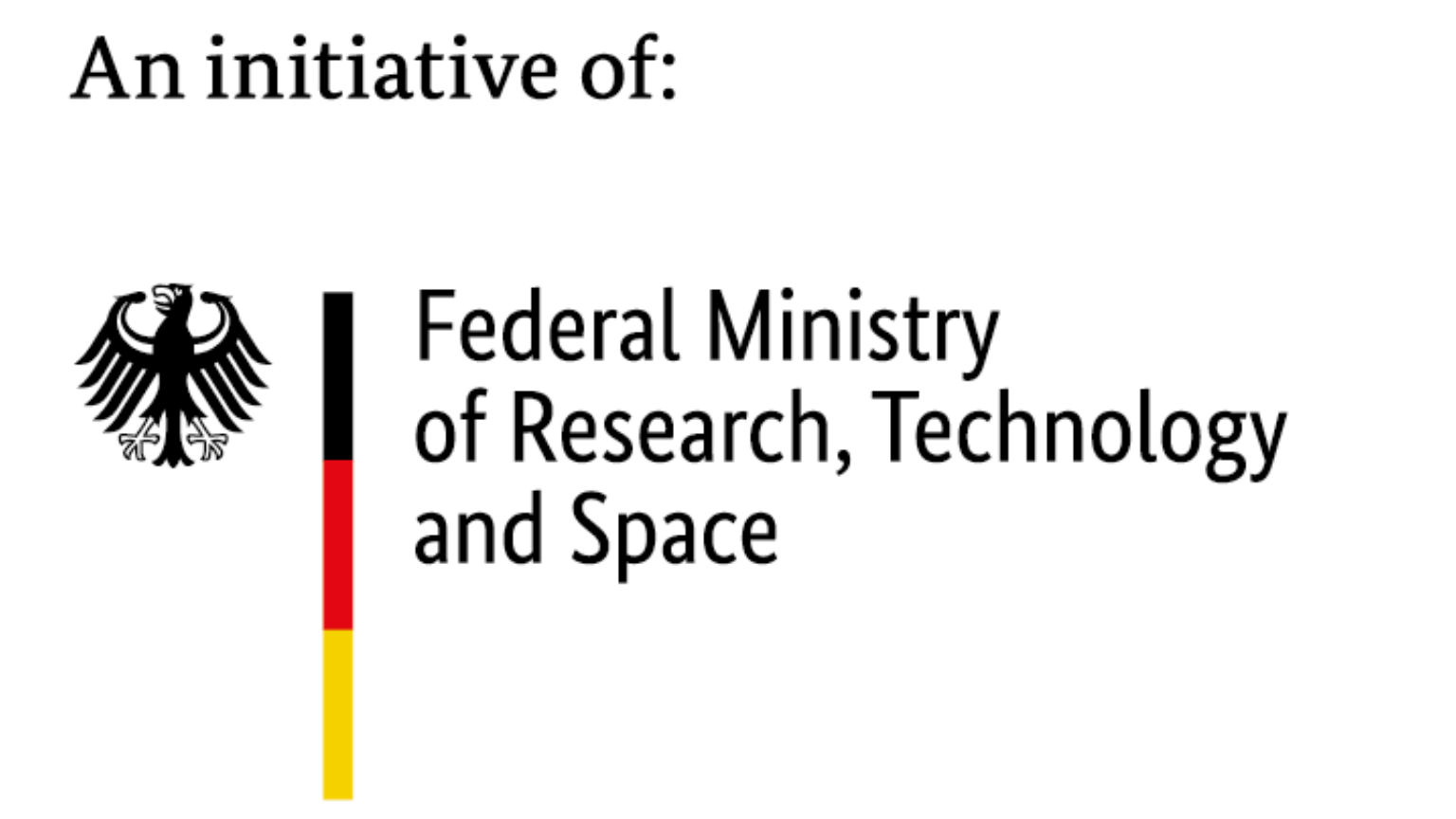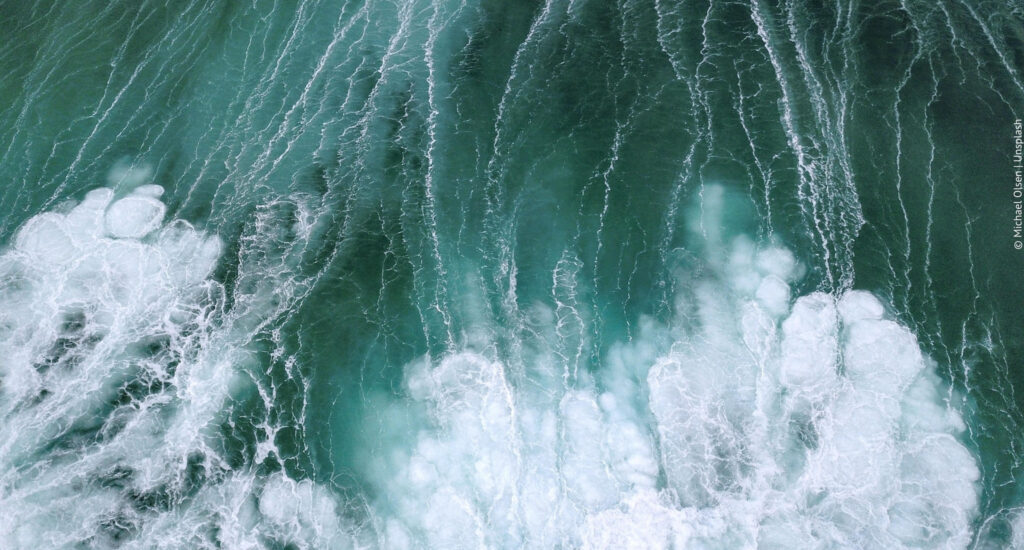
Foundation
The German Marine Research Alliance
Seas and oceans play a central role in global climate processes. They are among the most important eco-systems on Earth and influence the lives of millions of people. There is a great need for knowledge on how to protect the oceans and make their use by humans more sustainable.In 2019, the German marine research community, to-gether with the federal government and the northern German states of Bremen, Hamburg, Mecklenburg-Western Pomerania, Lower Saxony and Schleswig-Holstein, founded the German Marine Research Alliance (Deutsche Allianz Meeresforschung, DAM).Germany has thereby created one of the world’s largest marine research alliances.
The political kick-off for the German Marine Research Alliance (DAM) took place on July 18, 2019: With the signatures of Federal Research Minister Anja Karliczek, Bremen Science Senator Eva Quante-Brandt, Hamburg Science Senator Katharina Fegebank, Science Minister Karin Prien from Schleswig-Holstein, Science Minister Bettina Martin from Mecklenburg-Western Pomerania and Lower Saxony State Secretary Sabine Johannsen, the administrative agreement on the establishment and funding of the DAM came into force.
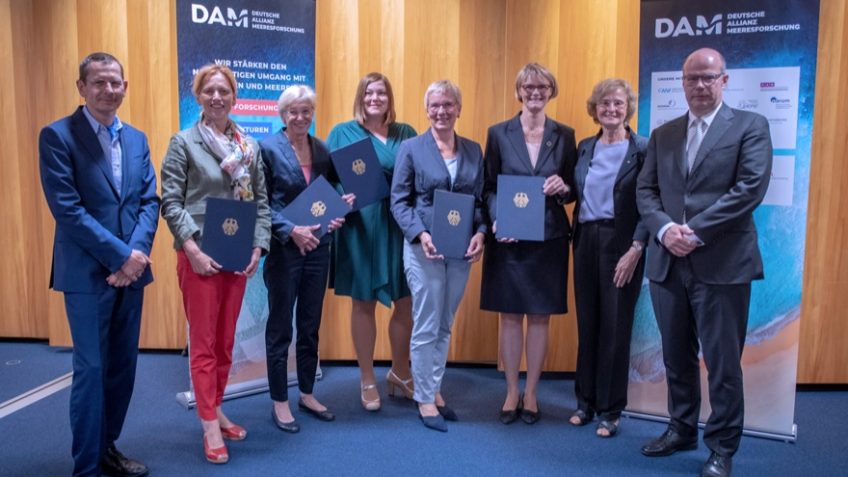
Founding of the association in Berlin: Broadly anchored in science
On July 4, 2019, the DAM was founded in Berlin in the legal form of a registered association of thirteen institutions: Alfred Wegener Institute Helmholtz Center for Polar and Marine Research (AWI), the Institute for Chemistry and Biology of the Marine Environment (ICBM) at Carl von Ossietzky University Oldenburg, Kiel University (CAU) with Kiel Marine Science (KMS) and GEOMAR Helmholtz Centre for Ocean Research Kiel, Helmholtz-Zentrum Geesthacht – Center for Materials and Coastal Research (HZG), Leibniz Institute for Baltic Sea Research Warnemünde (IOW), Leibniz Centre for Tropical Marine Research (ZMT), MARUM – Center for Marine Environmental Sciences at the University of Bremen, Max Planck Society for the Advancement of Science e. V. V.(MPG) with the Max Planck Institute for Marine Microbiology (MPI-MM) and the Max Planck Institute for Meteorology (MPI-M), Senckenberg Gesellschaft für Naturforschung with Senckenberg am Meer, University of Hamburg with the Center for Earth System Research and Sustainability (CEN), and University of Rostock with the Department of Maritime Systems (MTS).
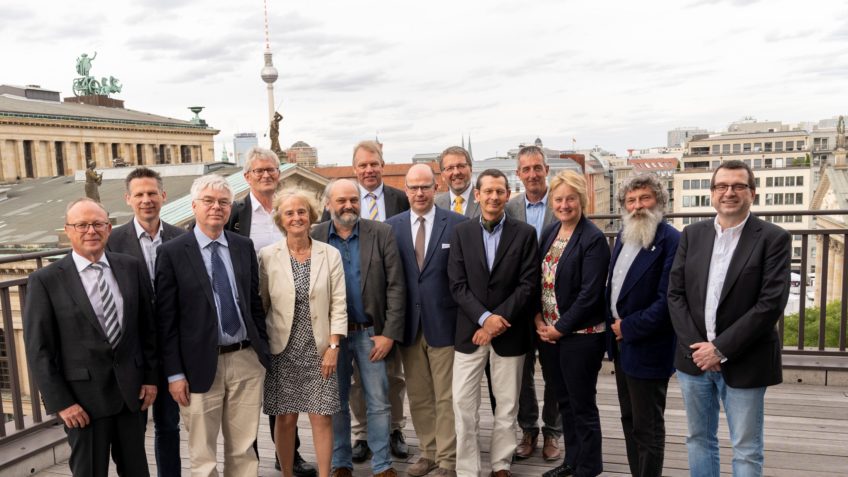
Kick-off event: First presentation of the DAM
On March 3, 2020, the DAM presented its tasks and goals to around 200 guests at the FUTURIUM in Berlin, based on its mission statement: “We strengthen the sustainable management of the coasts, seas and oceans through research, data management and digitalization, infrastructures and transfer.”
Some impressions of the event:
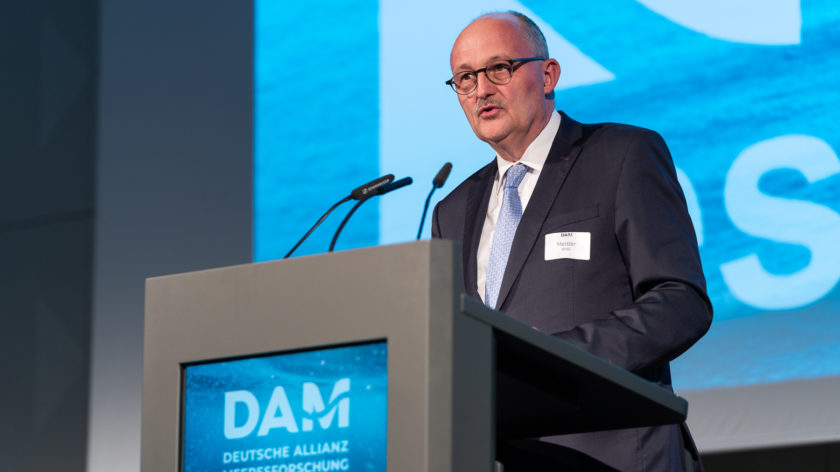
“The oceans, as we know them, are massively threatened,” as Michael Meister observed very frankly. As parliamentary state secretary at the Federal Ministry of Education and Research, he was explaining the Federal Government’s commitment to marine research and the DAM. The goal: “Not only do we want to make excellent research possible; we also want this knowledge to be applied.”
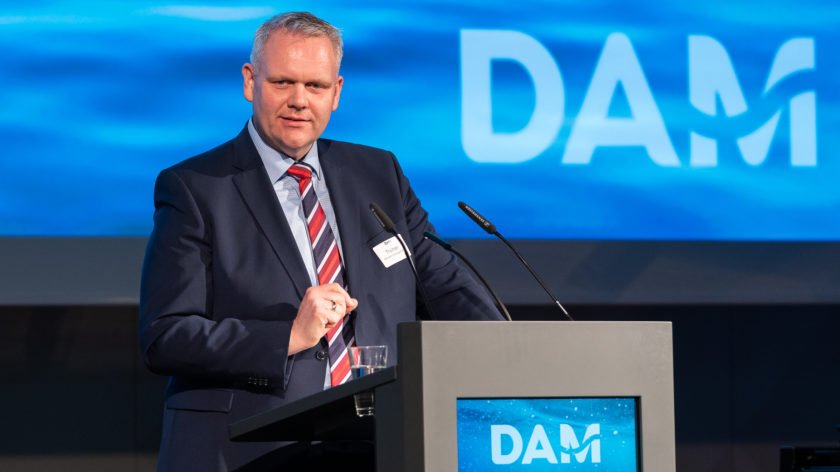
“Marine protection, coastal protection and climate protection form a powerful triad, which is particularly important for the North German states,” said Björn Thümler, the Minister of Science and Culture of Lower Saxony, who was also speaking on behalf of the North German states of Bremen, Hamburg, Mecklenburg-Western Pomerania and Schleswig-Holstein. His plea: “So I can only appeal to the researchers involved – not only as a minister, but also as someone who lives on the coast: Use the opportunities offered by this alliance to make new discoveries and help us to find the right answers to climate change.”
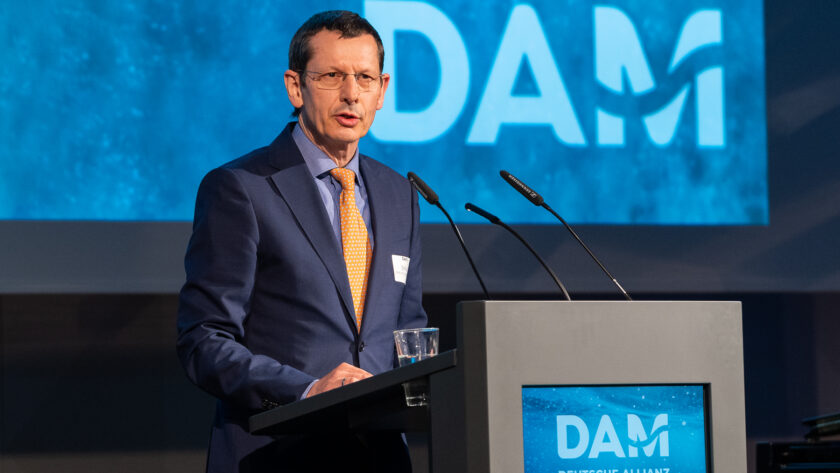
In his speech, Michael Schulz, Deputy Chairman of the DAM Executive Board, emphasized that “the planned cooperation in the DAM means that we in science will have to move partly out of our comfort zone and – in dialogue with stakeholders – move forward together. The scientific community is aware of this responsibility and I am confident that we will deliver”.
A panel discussion on “SEA Sustainability: From Knowledge to Action” brought together representatives of stakeholders with two marine scientists.
Newsletter
Always up to date with the DAM newsletter. (German only)
